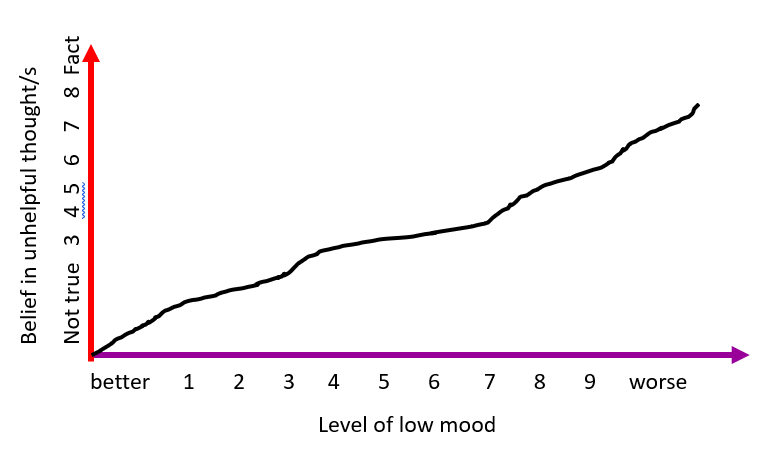Green
Coping / needs support; These are experiences that most young people will have from time to time
Type and nature of mood issue
It is common for children and young people to experience episodes of feeling sad, low or down as they develop through childhood and adolescence. The typical mood issues children and young people experience tend to be situation specific, short term and can be managed with the love and support of parents/ carers. Examples of situations that may cause/ contribute to a young person to feel down or low in mood might be:
- Adjusting to changes (such as a new school)
- Friendships or relationship issues
- Episodes of being teased or bullied (including being or feeling left out or excluded)
- Being physically poorly or in pain
- Family breakdown or conflict
- Grief or loss (of a pet, family member or friend)
- Struggling with academic work
What you might see or a young person might report
- Being clingy and not wanting to be separated from a parent/ carer
- Not wanting to be left alone
- Seeking verbal reassurance and checking things are ok
- Not wanting to go to school
- Avoidance of seeing friends or doing activities they ordinarily enjoy
- Having mild sleep disturbance
- Feeling tired or appearing lethargic and unmotivated and disinterested
- Appearing withdrawn and less communicative
- May appear more challenging or oppositional/ argumentative
- Crying
Things to try, support and Next Steps
- Normalise that feeling sad or down is a natural emotion particularly in response to a sad, disappointing or difficult event
- Activity helps; encourage a young person to do a range of tasks and activities including one they need to do such as school work to fun things.
- Keep a routine and have nice things planned
- Break things down into small steps and do one at a time so tasks do not seem so overwhelming
- Use distraction techniques, here are some strategies to try;
A-Z of coping strategies: https://youtu.be/5EXpkVw3fh
How to make and use a coping box: https://youtu.be/OyfgodSSdV4
- Role model and demonstrate that you can do things even when you’re feeling sad or down
- Be compassionate by validating how a young person is feeling
- Support a young person to problem solve any obvious triggers
- Watch our parent/ carer workshop on Coping and Resilience Skills here: (to be uploaded)
Useful Resources:
- Stuff That Sucks, by Ben Sedley
- Little Blue book of sunshine - a mental health booklet that has been developed for children and young people living in Hampshire, Southampton and the Isle of Wight. The book aims to help children and young people by sharing tips on how to deal with many problems, such as anxiety, body image, relationships and anger. It also includes information about where to get help when needed, including information about local services. Click here to access the PDF or access the booklet via Apple Books or Google Play Books.
Amber
Needs help; These are challenges that some young people experience and may need some support with
Type and nature of mood issue
The degree to which a young person feels low or depressed appears out of context or disproportionate to the reason why they might be feeling sad. Episodes of low mood might be more frequent or prolonged and cause the young person distress or might have some mild impact on their ability to cope with everyday life such as going to or coping at school, seeing friends or taking part in leisure activities. Examples of situations that may cause/ contribute to a young person feeling low in mood or depressed:
- Being routinely teased or bullied (including being or feeling left out or excluded)
- Grief or loss (including romantic relationships ending)
- Witness or experience of conflict (at home or school)
- Change and uncertainty (such as family breakdown)
- Family and relationship stressors (parent/ sibling ill-health, financial or social stressors)
- Academic pressures/ demands including exam stress and worry about the future
Please note, there are occasions when there is no apparent trigger/ cause/ contributory factor as to why a young person may be experiencing episodes of low mood/ depression. A young person can still be low in mood without clear reason.
What you might see or a young person might report
As well as the features in Green, the following might also be present:
- Disrupted sleep (difficulties getting to or staying asleep, waking very early in the morning and not being able to get back to sleep)
- Seeking physical or verbal seeking reassurance or wanting to withdrawn from social contact and communication
- Resistance to doing things; appearing unmotivated and disinterested
- Poor personal hygiene (not washing or changing clothes regularly)
- Emotionally labile; frequent changes of emotion, more sensitive (e.g., irritable, upset, confused)
- Thoughts or urges to harm self or some thoughts to end life; some infrequent or superficial (not requiring medical attention) self-harm may occur.
Please note that not all young people who engage in self-harm behaviour are depressed or suicidal. There are many reasons why a young person may engage in self-harm behaviour.
Things to try, support and Next Steps
As well as the steps in Green the following might be helpful:
- Watch our parent/ carer workshop on how to support a young person with self-harm or in crisis here: https://youtu.be/qBAZQVjSmQU
- Share concerns with your child’s school/ college
- See your child’s GP
- Access pastoral support from school
- Consider accessing help from a local counselling service. Kooth is a free online counselling and emotional wellbeing support service offered to young people aged 11 - 25 years (up to their 26th birthday) living in Dorset, Hampshire and the IoW with a safe and secure means of accessing support with their emotional and mental health needs from a professional team of qualified counsellors.
- Seek advice, guidance and support from Young Minds Parent Helpline: 08088025544
- Depending on the context and/ or the origins of the low mood being experienced, other services may be helpful e.g., family guidance if there is family breakdown or conflict
Useful Resources:
- Stuff That Sucks, by Ben Shelly
- Am I Depressed? And What Can I Do About It? by Shirley Reynolds and Monika Parkinson
- Beyond The Blues; A Workbook To Help Teens Overcome Depression, by Lisa Schab
- Stopping The Pain; A Workbook For Young People Who Cut and Self-Injure, by Lawrence Shapiro
- Little Blue book of sunshine - a mental health booklet that has been developed for children and young people living in Hampshire, Southampton and the Isle of Wight. The book aims to help children and young people by sharing tips on how to deal with many problems, such as anxiety, body image, relationships and anger. It also includes information about where to get help when needed, including information about local services. Click here to access the PDF or access the booklet via Apple Books or Google Play Books.
Red
Needs Specialist Treatment or a Crisis Response; These are difficulties that cause a significant impact and a young person may need specialist support.
Type and nature of mood issue
Episodes of low mood/ depression are severe and enduring. These cause significant distress to a young person and significantly disrupt daily coping such as school/ college, socialising and even self-care activities (e.g., sleep, bathing, eating). Despite trying advice in the green and amber stages, the young person still experiences depression symptoms. Examples of situations that may cause/ contribute to a young person feeling low in mood or depressed:
- Chronic bullying or abuse (including neglect, emotional, physical, sexual)
- Social or family financial stressors (such as family breakdown, conflict or parental/ sibling ill-health)
- Grief or loss
- Witnessing or experiencing a traumatic event
- Overwhelmed by pressures and stressors including individual factors e.g., health, social factors e.g., relationships, occupational factors e.g., school/ college and environment e.g., living circumstances
Please note, there are occasions when there is no apparent trigger/ cause/ contributory factor as to why a young person may be experiencing episodes of low mood/ depression. A young person can still be acutely depressed without clear reason.
What you might see or a young person might report
As well as the features in Green and Amber, the following might also be present:
- Isolating self from friends and family
- Withdrawn and uncommunicative or not wanting to be left alone at all- this may seem uncharacteristic or age inappropriate for some teenagers
- Refusal to leave the house or attend/ take part in activities such as school, hobbies, interests, seeing friends
- Significant impact on health and wellbeing such as not sleeping or eating for a sustained period of time. May show signs of physical compromise as a result.
- Appearing uncaring or unbothered about people or activities they previously would have cared about- may not honour commitments or responsibilities which is uncharacteristic
- Lack of insight or awareness that others may be concerned- this may lead to arguments or conflict at home
- May on occasion becoming agitated, distressed, oppositional or aggressive towards others
- Reactive and impulsive behaviour such as running away which may place them or others in danger
- Feeling hopeless about the future- not being able to see a future and appearing to give up on dreams, goals and hopes
- Thoughts, feelings, urges, plans or intent to harm self or end their life or harm others.
Please note that not all young people who engage in self-harm behaviour are depressed or suicidal. There are many reasons why a young person may engage in self-harm behaviour.
Things to try, support and Next Steps
As well as the steps in Green and Amber the following might be helpful:
- Speak with your child’s GP
- Speak with the School Nursing Team
- Depending on the context and/ or the origins of the low mood/ depression being experienced, other services may be helpful. There may be a role for other services such as Children’s Services or other statutory or voluntary organisations that can support if there are clear triggers for anxiety e.g., abuse, domestic violence, bullying, being a young carer etc.
- Kooth is a free online counselling and emotional wellbeing support service offered to young people aged 11 - 25 years (up to their 26th birthday) living in Dorset, Hampshire and the IoW with a safe and secure means of accessing support with their emotional and mental health needs from a professional team of qualified counsellors.
- Seek advice, guidance and support from Young Minds Parent Helpline: 08088025544
Consider making a self-referral to a CAMHS Service. If your young person is at risk of harm, please make this clear when making the referral.
Useful Resources:
- Stuff That Sucks, by Ben Edley
- Am I Depressed? And What Can I Do About It? by Shirley Reynolds and Monika Parkinson
- Beyond The Blues; A Workbook To Help Teens Overcome Depression, by Lisa Schab
- Stopping The Pain; A Workbook For Young People Who Cut and Self-Injure, by Lawrence Shapiro





